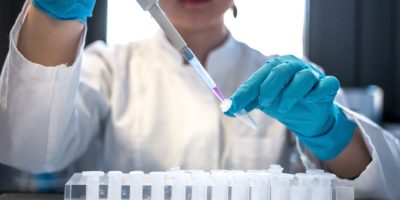LAB-Net Abstracts at ECCMID 2023
LAB-Net, Laboratory of Medical Microbiology, University of Antwerp, will present breakthrough findings during the forthcoming 33rd European Congress of Clinical Microbiology and Infectious Diseases (ECCMID) which will take place in Copenhagen, Denmark on 15 – 18 April 2023.
The first abstract is titled ‘Collateral fitness and pathogenicity effects on Pseudomonas aeruginosa after antibiotic exposure’. It reports on the collateral effects of Pseudomonas aeruginosa exposure to imipenem on antibiotic susceptibility changes and on the underlying resistance mutations responsible for the altered phenotypes. Collateral changes in biofilm formation and the emergence of genetic changes in vitro and in vivo, as well as their effect on virulence and fitness were also investigated. Among the tested isolates are ASPIRE-ICU and EVADE isolates. In addition to the expected mutations associated with carbapenem resistance, both in vitro and clinical isolates of P. aeruginosa exposed to carbapenem developed alterations in lipopolysaccharide biosynthesis genes and increased biofilm formation that might have a potential role in immune evasion and chronic adaptation. The results will be presented during an oral presentation at ECCMID, on 16 April 2023 at 14:45 in Hall L.
The second abstract ‘External quality assessment within Central and Eastern European countries participating in LAB-Net to prepare for clinical trials’ describes the outcome of an external quality assessment (EQA) within four Central and Eastern European countries participating in LAB-Net to prepare for clinical trials. The aim of this EQA panel was to evaluate the performance of seven laboratories participating in an ongoing clinical observational study, to detect hospital-acquired pneumonia (HAP) and ventilator-associated pneumonia (VAP) related bacterial pathogens. The accuracy of antimicrobial susceptibility testing (AST), detection of resistance mechanisms and reporting of antimicrobial resistance was also evaluated. Notable differences in performance between laboratories were observed in terms of the quality of laboratory work. Iterative external quality assessment (EQA) surveys along with site evaluation and feedback are likely necessary to address identified deficiencies, improve patient care and safety, and ensure a successful potential study outcome. The results will be presented during the poster session, on 16 April 2023 at 12:00 in the Poster Area.
The third abstract is ‘Geospatial factors pre-eminently shape the global genome profiles of Staphylococcus aureus ST398′. S. aureus sequence type (ST)398 is a common colonizing species in livestock, but is emerging more frequently as a cause of human infections. ST398 has been frequently sequenced from different countries and sources (biomes). In this study, the extent of genome differentiation, and the factors underlying differences in virulence and host specificity are explored using all 903 publicly available ST398 sequences from human and animal sources worldwide that were deposited in NCBI until 2021. Results of this study showed that the global profiles of ST398 genomes were influenced mostly by geospatial factors, and that the accessory genome accounted as the main cause of genome differentiation between isolates of human and animal origin. The results will be presented during the ePoster flash session, on 18 April 2023 at 11:00.
More information about the conference: https://www.eccmid.org
Related updates

The Last of COMBACTE: COMBACTE-NET

Important Pieces Of A Puzzle
